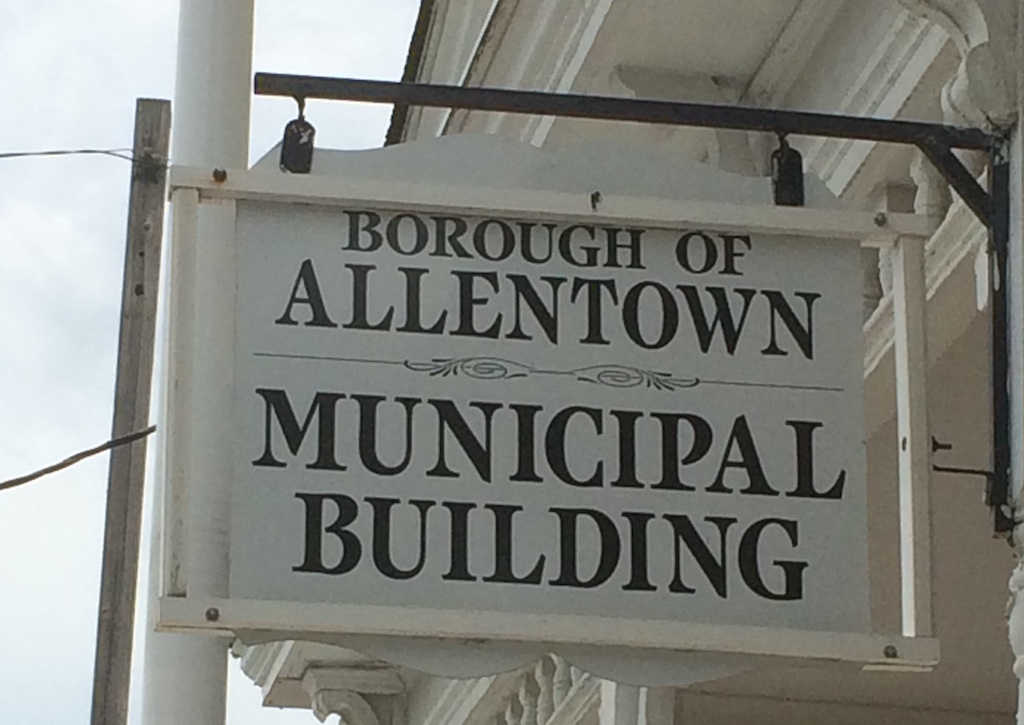ALLENTOWN – In a 6-0 vote, the members of the Allentown Borough Council have adopted an ordinance that prohibits cannabis businesses from operating in the community.
During a meeting on July 6 that was held in Borough Hall and streamed live online, Borough Council President John A. Elder III, Councilman Rob Strovinsky, Councilman Michael Drennan, Councilwoman Martha Johnson, Councilman Dan Payson and Councilwoman Erica Torsiello voted “yes” on a motion to adopt the ordinance.
The new legislation amends Allentown’s municipal ordinances “to opt out of the New Jersey State Cannabis Law and to prohibit all consumption of cannabis in public places, and all underage possession of cannabis items, and to clarify that all cannabis cultivation facilities, manufacturers, wholesalers and retail establishments are prohibited uses within Allentown.”
Borough officials were facing an Aug. 21 deadline to decide whether any or all types of New Jersey’s approved cannabis businesses would be permitted to operate in Allentown. A failure to act would have meant that automatic zoning would permit the operation of cannabis businesses.
Municipal officials in New Jersey may issue six types of licenses related to cannabis:
• Cannabis Cultivator license, for facilities involved in growing and cultivating cannabis;
• Cannabis Manufacturer license, for facilities involved in the manufacturing, preparation and packaging of cannabis items;
• Cannabis Wholesaler license, for facilities involved in obtaining and selling cannabis items for later resale by other licensees;
• Cannabis Distributor license, for businesses involved in transporting cannabis plants in bulk from one licensed cultivator to another licensed cultivator, or cannabis items in bulk from any type of licensed cannabis business to another;
• Cannabis Retailer license, for locations at which cannabis items and related supplies are sold to consumers;
• Cannabis Delivery license, for businesses providing courier services for consumer purchases that are fulfilled by a licensed cannabis retailer in order to make deliveries of the purchased items to a consumer; this service would include the ability of a consumer to make a purchase directly through the cannabis delivery service which would be presented by the delivery service for fulfillment by a retailer and then delivered to a consumer.
By law, Allentown officials may not prohibit the delivery of cannabis and cannabis supplies to addresses in the borough by a delivery service that is licensed in another municipality.
A public hearing was conducted prior to the council members’ vote to adopt the ordinance. Several individuals addressed Mayor Thomas Fritts and the six council members.
John Tew said two concerns among residents are Allentown’s high property taxes and the need for people to patronize the borough’s existing businesses. He asked municipal officials, “Why not allow a small boutique (cannabis) retailer (to operate) as is done with alcohol?”
Payson said Allentown’s elected representatives researched what other municipalities are doing in terms of cannabis businesses.
“I don’t want that (cannabis businesses) to be something that draws people to Allentown,” the councilman said. “With our lack of parking and our traffic issues, that (a cannabis business) is not something we are ready for. I don’t think it is the right thing for Allentown currently.”
Drennan expressed concern about children walking past a cannabis business on their way to and from school.
Edward Grimes represents SativaCross.org, which advocates for cannabis patients’ rights. He cited the ordinance’s prohibition on the consumption of cannabis in public places and expressed concern that medical cannabis patients “will be harassed.”
Borough Attorney Greg Cannon said Grimes raised good points regarding the consumption of cannabis in public places and said the authority to enforce the ordinance will rest with police.
Borough officials said the intent of the ordinance is not to, in Grimes’ words, harass medical cannabis patients who may be using a cannabis lotion or another cannabis product in public to deal with a medical condition.
Jaime Van Sciver, who also represents SativaCross.org, said, “We need to give people access to something they voted they wanted. You (borough officials) are only giving people access to things that kill them” (alcohol from liquor stores and prescription drugs from a pharmacy).
Hugh Giordano represents the United Food and Commercial Workers union, which represents the state’s medical cannabis workers and adult use cannabis workers.
“These jobs (at a cannabis business) will be good, living wage jobs,” Giordano said, before he asked the council members to consider where such businesses could be located in Allentown.
When the public hearing on the cannabis ordinance was closed following 35 minutes of comments and discussion, a motion was made to adopt the ordinance and the council members’ unanimous vote to adopt the law was the final action on the matter.

